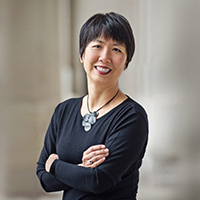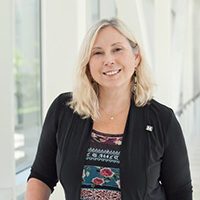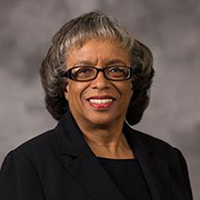WOCAP Spring Celebration & Faculty Administrator Panel Discussion
Weiser Hall, 500 Church Street, Ann Arbor, MI 48109
Join us for WOCAP’s Spring Celebration & Faculty Administrator Panel Discussion
This will be an intimate evening to recognize our community’s diverse accomplishments and achievements and will include a special faculty administrators’ panel that will share their experiences and views in promoting diversity, equity, and inclusion at the U-M!
Program Overview
6:00 – 6:35 p.m. Meet & Greet and Appetizers & Drinks
6:40 – 7:25 p.m. Faculty Administrator Panel on DEI
- Rita Chin, Professor of History and Rackham Associate Dean for Academic Programs and Initiatives
- Sofia Merajver, Professor of Internal Medicine and Epidemiology and Scientific Director of the Breast Cancer Program and Director of the Breast and Ovarian Cancer Risk Evaluation Program at the UM Comprehensive Cancer Center
- Stephanie Rowley, Professor of Psychology and Education and Associate Vice President for Research, University of Michigan Office of Research
- Moderated by Patricia Coleman-Burns, Assistant Professor Emerita of Nursing, School of Nursing & WOCAP Steering Committee Member
7:30 – 8:00 p.m. Table Discussion & Dessert
Please register by April 1st, space is limited.
Panelists
 Rita Chin, Professor of History and Rackham Associate Dean for Academic Programs and Initiatives
Rita Chin, Professor of History and Rackham Associate Dean for Academic Programs and Initiatives
Dr. Rita Chin received a Ph.D. from U.C. Berkeley in 1999. Chin’s award-winning scholarship has addressed some of the most pressing issues in modern European history, specifically the massive socio-cultural effects of postwar labor migration on European nations and their struggles to come to grips with the radical demographic diversity it produced. Her research and writing have been supported by major foundations, including the Woodrow Wilson International Center for Scholars (2007–08), the American Council for Learned Societies (2010–11), and the John Simon Guggenheim Memorial Foundation (2018–19). Her publications include the books The Guest Worker Question in Postwar Germany, After the Nazi Racial State: Difference and Democracy in Germany and Europe, and The Crisis of Multiculturalism in Europe: A History, in addition to numerous published book chapters, articles, and reviews.
In 2018, Rackham Graduate School welcomed Professor Rita Chin as an Associate Dean for Academic Programs and Initiatives. In her administrator, Chin serves as the primary liaison between Rackham and academic units in the social sciences to promote best practices in graduate education and to achieve student success. In addition, she serves as a contact for Rackham on campus and nationally, to promote and support cross-unit partnerships and interdisciplinary efforts, and to develop new initiatives and programs, including efforts in the areas of diversity, climate, and professional development. In addition, Chin is also a faculty sponsor for a Rackham Interdisciplinary Workshop on Migration and Displacement and directs the History Department’s career diversity and professionalization initiatives.
 Sofia Merajver, Professor of Internal Medicine and Epidemiology and Scientific Director of the Breast Cancer Program and Director of the Breast and Ovarian Cancer Risk Evaluation Program at the UM Comprehensive Cancer Center
Sofia Merajver, Professor of Internal Medicine and Epidemiology and Scientific Director of the Breast Cancer Program and Director of the Breast and Ovarian Cancer Risk Evaluation Program at the UM Comprehensive Cancer Center
Dr. Sofia Merajver received a doctoral degree in physics from the University of Maryland and a medical degree from the University of Michigan. She completed a residency in internal medicine and a fellowship in oncology at the University of Michigan before joining the faculty in 1994. Merajver, an expert in breast cancer genetics, is the medical director of the Breast and Ovarian Cancer Risk Evaluation Program at the U-M Rogel Cancer Center. Her research interests include the molecular genetics of breast cancer, gene function, and cancer risk assessment. Dr. Merajver and her team put science into practice every day by helping women at high risk for breast cancer find ways to deal with the risk. Her research laboratory is devoted to understanding the molecular and metabolic regulators of very aggressive breast cancer types. The primary areas of focus are systems biology, mathematical oncology, biophysics, cell biology, genetics, and drug development. She works in concert both in the lab and in the clinic, making the lab advances immediately available, through novel interventions and clinical trials, to her patients.
As Director of the Breast and Ovarian Cancer Risk Evaluation Program which she founded at the University of Michigan in 1995 and as scientific leader of the Breast Oncology Program, Merajver engages with clinical translational research that tests prevention and therapeutic interventions as well as educational tools to improve cancer outcomes globally. She supervises graduate and undergraduate students, and mentors postdoctoral fellows and junior faculty who have entered research careers in molecular and psychosocial aspects of cancer outcomes in special populations in the US and in Africa. Professor Merajver’s global health research includes collaborations with multidisciplinary teams in the medical, epidemiological, engineering, and social sciences to train translational scientists and to best deliver cancer risk management interventions around the globe and rigorously evaluate their impact in ameliorating inequities in health.
 Stephanie Rowley, Professor of Psychology and Education and Associate Vice President for Research, University of Michigan Office of Research
Stephanie Rowley, Professor of Psychology and Education and Associate Vice President for Research, University of Michigan Office of Research
Dr. Stephanie Rowley received a Ph.D. in Developmental Psychology from the University of Virginia in 1997. In 2000 she joined the University of Michigan’s Department of Psychology and eight years later, she added an appointment and is a faculty member with the Combined Program in Education and Psychology, an interdisciplinary program that spans the Psychology Department and School of Education. Dr. Rowley’s research focuses on the influence of race- and gender-related attitudes and beliefs on the development of children’s academic self-concept with a strong emphasis on parents’ roles in the development of these attitudes. Her most recent project is an NSF-funded longitudinal study of African American parents’ beliefs about Science, Technology, Engineering, and Math (STEM) and the relation of those beliefs to the socialization of their middle school youth. Dr. Rowley also serves as one of six principal investigators at Michigan’s Center for the Study of Black Youth in Context, a research center dedicated to the study of Black youth, training of doctoral and post-doctoral students, and community outreach.
Dr. Rowley’s administrative leadership experience has included time as associate chair of psychology, interim chair of psychology, and as chair of the Combined Program in Education and Psychology. She currently serves as the Associate Vice President for Research, Social Sciences and Humanities, Rowley’s principal focus is to work with deans, department heads and faculty in the social sciences and humanities to support their research, and to provide leadership in developing and coordinating new initiatives. She also serves as liaison to selected research units reporting to the U-M Office of Research.
About the Moderator
 Patricia Coleman-Burns, Assistant Professor Emerita of Nursing, School of Nursing & WOCAP Steering Committee Member
Patricia Coleman-Burns, Assistant Professor Emerita of Nursing, School of Nursing & WOCAP Steering Committee Member
Dr. Patricia Coleman-Burns has focused her career on retention and successful learning behaviors of underrepresented nursing students; health disparities and social justice in patient-centered care and providers’ behaviors; Black ideology; and the Colored Women’s Club Movement. She is an advocate for the right of all persons to be free from gender oppression, sexism, racism, and violence. Dr. Coleman-Burns has made considerable contributions to the School of Nursing’s teaching mission. She has taught across the undergraduate curriculum and specializes in communications – specifically speech pedagogy and rhetorical criticism – as well as African American Studies. More specifically, during her career, she has developed and taught courses focusing on social and political movements, gender and racial identity issues, topics in speech and women’s studies, and health disparities and cultural competence. She taught “Nursing as a Social Interpersonal Profession (NURS-122) and Cultural Aspects of Health and Illness (NURS-477). Her research is on racial identity and the reduction of health disparities.
Dr. Coleman-Burns has served as the co-chairperson of U-M’s Violence against Women Taskforce as well as serving on several advisory committees on diversity, multicultural and women’s issues. She serves on the Executive Board of Safehouse Center, which provides services for those impacted by domestic violence and sexual assault. In addition, Dr. Coleman-Burn also serves as a Steering Committee member for the Women of Color in the Academy Project and plays a critical role in creating a campus-wide faculty network for women of color scholars.

